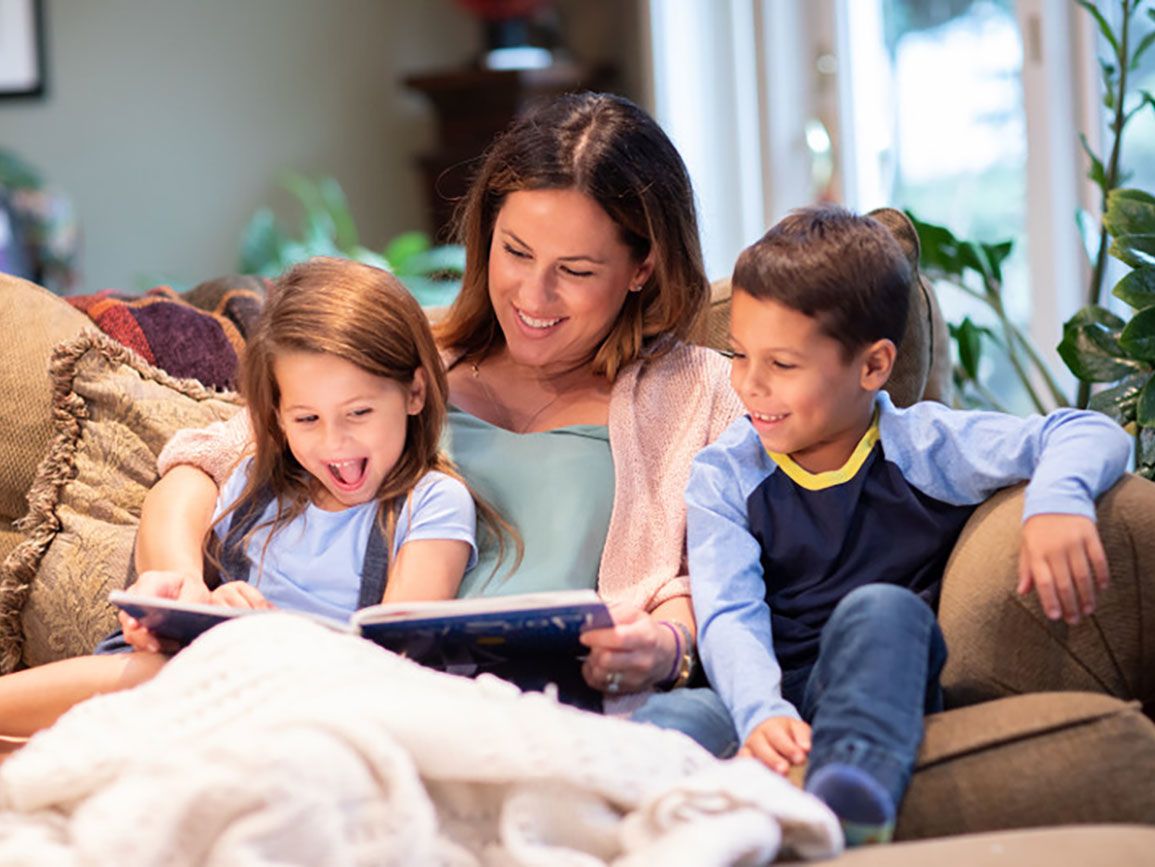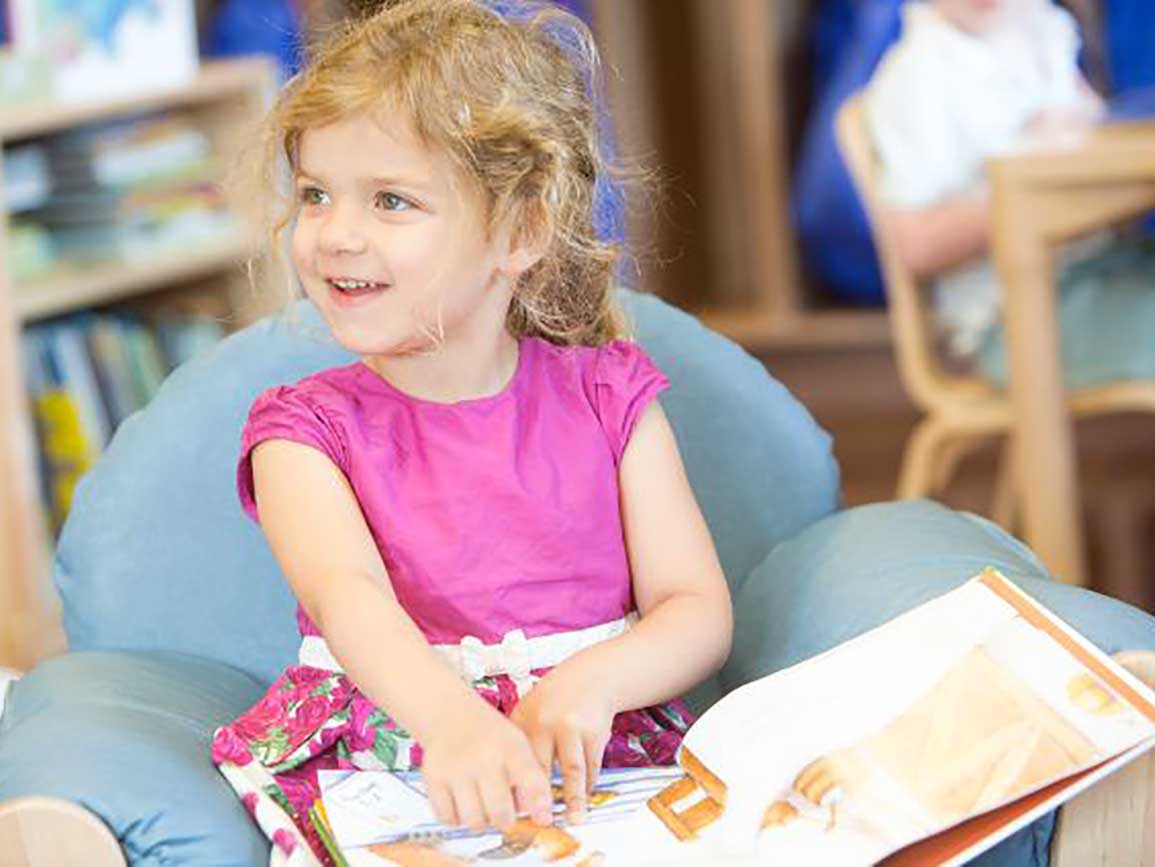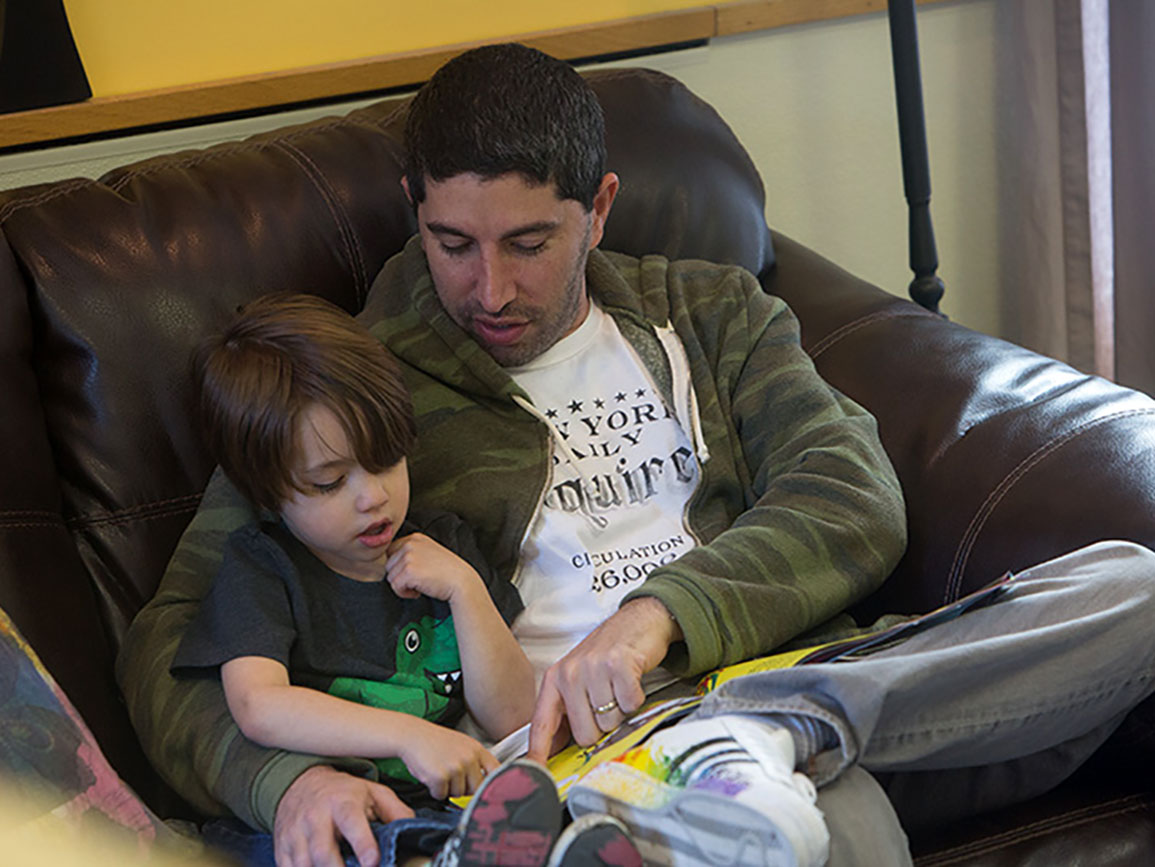Children gain a great deal of knowledge of language (reading, writing, oral/receptive language-speaking listening and understanding) from infancy. Children’s early literacy starts with listening to the sounds in their world and experimenting with making sounds and words on their own. As a parent, you help your child develop literacy by creating opportunities for conversation and communication.
Talking, singing, playing, and reading books together all build the brain connections needed for language, literacy, and learning. When we share books and engage in conversations with our children, we are able to help children learn that pictures and words hold meaning, introduce new vocabulary words, and familiarize children with standard conventions of the printed word. While each child is on their own developmental journey, the process for gaining literacy unfolds in a predictable sequence—babies and toddlers hear words, then say words; older children hear and see the written word before they read and write. By offering rich, meaningful early literacy experiences, we can support all children regardless of the rate of their literacy development.
Infants
Babies’ brains are wired for language and communication. Talk with your baby, using the back-and-forth technique called serve and return. Sing, play, and read stories. Respond to your baby’s gestures, grunts, and attempts to communicate. Teach your baby a few signs, which have been shown to accelerate language development.
Toddlers
During their first two years, most children move from using single words and phrases to talking in short sentences. Talking and reading high-quality children’s literature with your toddler every day has a lasting impact on language, social, and cognitive development. When children are read to frequently, they often recite key phrases or words from favorite books, which in turn, builds confidence and an interest in reading.
Preschool
Three-and 4-year-old children make huge strides in literacy. They begin to “read” their favorite books, focusing mostly on retelling the story from the pictures. They listen intently to add words and phrases to their growing vocabulary, and to learn grammatical rules. By asking many questions and experimenting with language, they evolve into active talkers. Some preschoolers are ready to read very simple books or write a few words.
Pre-kindergarten
By the age of 4 ½ to 5, a child’s speaking vocabulary grows from a few hundred words to more than a thousand, and they understand more than that. They are able to comprehend the complicated rules of grammar and syntax. Pre-kindergarteners can now participate in more elaborate conversations, use words to solve problems, and make up stories and songs on their own.
Kindergarten
Many children arrive at kindergarten with a rich vocabulary and an awareness of printed language. Most kindergarteners are considered to be emergent readers. They thrive when exposed to literacy-rich environments and experiences.
School Age
Children’s writing emerges rapidly in this period. As children become more proficient and language-aware writers, some go through a period of insisting on asking for conventional spellings. They are thirsty for language knowledge. This makes vocabulary development, reading, and pre-reading for comprehension, word awareness, spelling and writing very important to their continual literacy development.In Our Classrooms
As early educators, we recognize both our responsibility to model inclusion for our young learners and our profound opportunity to make a real difference for the next generation. As with all aspects of our Bright Horizons curriculum, careful care and intuitive planning occurs to ensure that literacy instruction meets the needs of each student in the classroom. The Bright Horizons Growing Readers: Ready to Read curriculum supplement supports pre-reading ad reading kills. In our classrooms, we:
- Work hard to create “places of belonging” where every child and family feels welcome. In our classrooms, you’ll find pictures of the children and their families, signs and labels written in children’s home languages, beautiful culturally inclusive materials, and diverse picture books. We’ve built our curriculum to create culturally authentic learning environments that celebrate and explore all cultures and experiences. We use a mirror (exploring a child’s own identity) and windows (understanding and embracing others) approach to learning.
- Engage children in rich and meaningful conversations, constantly modeling language use.
- Use a variety of materials for storytelling experiences. Poetry, fiction and nonfiction are all part of our high-quality children’s libraries.
- Support phonological awareness activities through rhyming games and activities, hearing and repeating songs and stories, poems and chants.
- Create a literacy-rich environment with books available in each learning center, and materials t inspire reading and writing. In older classrooms, well-stocked writing centers can be found to allow freedom of exploration. A sample of our high-quality book recommendations can be found in the Growing Readers program for families.
For more about supporting early literacy,
- Discover book recommendations and storytelling our through Growing Readers reviews
- See how Bright Horizons supports School Readiness
- Explore more about supporting literacy learning and math for your young child





